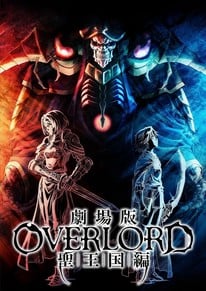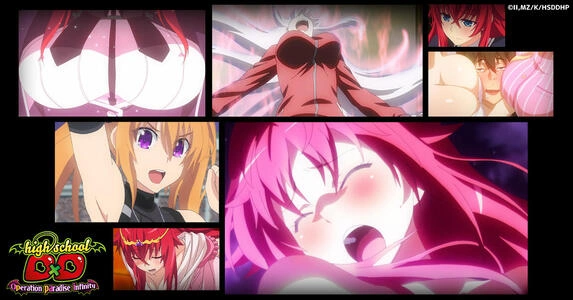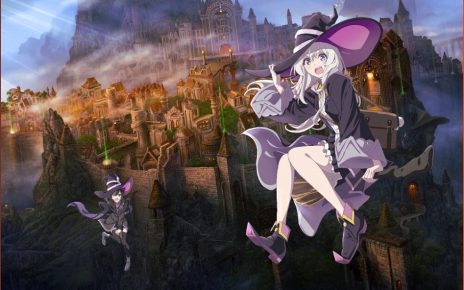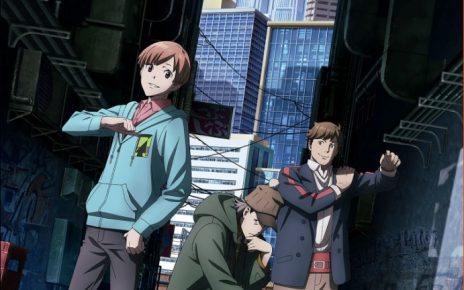In the grand world of anime adaptations, few projects have generated as much anticipation as "Overlord: The Sacred Kingdom." A standout entry in a beloved franchise, this film seeks to fill in narrative gaps left by the transition from the "Overlord IV" series to a larger cinematic format. At its core, this movie delivers a blend of epic fantasy, character development, and philosophical exploration, making it an intriguing spectacle for both hardcore fans and newcomers.
Table of Contents
The Sacred Quest: A Synopsis

Overlord: The Sacred Kingdom Anime Film Review
Centered on the Holy Roble Kingdom, which finds itself besieged by the fearsome Demon Emperor Jaldabaoth and his demi-human forces, the narrative kicks off with a gripping sense of urgency. Unable to overcome this formidable foe alone, the young paladin squire Neia Baraja, in her search for salvation, becomes an attendant to the enigmatic Sorcerer King Ainz Ooal Gown. Together, they embark on a mission to rescue her kingdom from certain doom—a journey threaded with peril, uncertainty, and revelations.
A New Perspective
One of the film’s most compelling aspects is its narrative perspective, primarily seen through the eyes of Neia Baraja. This approach marks a departure from the original series by withholding Ainz’s inner monologue. In doing so, audiences are encouraged to interpret Ainz’s motives through Neia’s lens, creating an intriguing layer of mystery and enhancing the character’s complexity. This storytelling method offers a fresh twist to the universe, challenging viewers’ assumptions and significantly engaging them until the final credits roll.
Neia Baraja: A Character’s Journey
Neia’s evolution from a misfit paladin to a passionate devotee of Ainz is both gripping and transformative. Unlike traditional heroes of yore, she embodies the harsh realities of her time: a beacon of hope transformed by her experiences. Her journey reflects the film’s central theme—the essence of justice. As the narrative progresses, Neia’s internal conflict highlights the famous battle between idealism and pragmatism. Her reinterpretation of justice under Ainz’s influence creates a duality that fuels the film’s thematic depth.
Chivalry in Conflict
In its exploration of justice, "Overlord: The Sacred Kingdom" uses the Roble Holy Kingdom’s principle of chivalry as a narrative tool to challenge perceptions of righteousness. Led by Remedios Custodio’s steadfast belief in purity, the kingdom stands on the brink of collapse—a testament to the dangers of adherence to rigid moral codes in times of crisis. The conflict posed by Jaldabaoth’s invasion serves as a catalyst for Neia’s inner transformation, pushing her to redefine justice beyond the scope of traditional chivalry—through the lens of power and the necessity to act for the greater good.
The Sorcerer King’s Dilemma
Ainz Ooal Gown, both a savior and an antagonist, embodies the film’s exploration of power and morality. His decision to support Neia and her allies reflects the complex interplay between strength and justice, showcasing his character as a paradoxical yet appealing figure. As he navigates the tumultuous political landscape, Ainz’s actions compel Neia to adopt a broader understanding of justice—one that intertwines strength with altruism.
Light Amid Darkness
Despite its grim undertones, the film doesn’t shy away from injecting humor and warmth into its narrative, significantly through Neia’s interactions with CZ2128, a demon maid. The unlikely friendship between these two characters offers moments of levity amidst the chaos, revealing hints of budding alliances and shared humanity that breach the boundaries set by their origins.
Visuals and Aesthetic Execution
Visually, "Overlord: The Sacred Kingdom" showcases consistent quality, though lacking some groundbreaking moments. The animations remain solid throughout, maintaining a vibrant yet Gothic style that complements the story’s depth. Musically, the film stays true to its atmospheric roots, with a score that highlights the narrative’s emotional beats.
Balancing Act: Adaptation Challenges
While the film adeptly bridges narrative gaps from the series, it does so at the expense of certain plot elements and character developments. These abridgments, although necessary for a theatrical runtime, may affect how audiences perceive the film’s political intricacies and Neia’s growth. Long-time fans of the novels might crave a more detailed exploration, one that a TV adaptation could potentially offer in the future.
Final Thoughts
"Overlord: The Sacred Kingdom" stands out as a remarkable addition to the fantasy genre. With its blend of engaging storytelling, robust thematic elements, and memorable character arcs, it captures the essence of the beloved series while offering fresh perspectives. Though some elements were streamlined, the film remains a captivating experience that invites introspection on the nature of justice, power, and humanity. Whether you’re a seasoned follower of Ainz’s adventures or a curious newcomer, this film promises an engaging journey filled with excitement, depth, and discovery.





